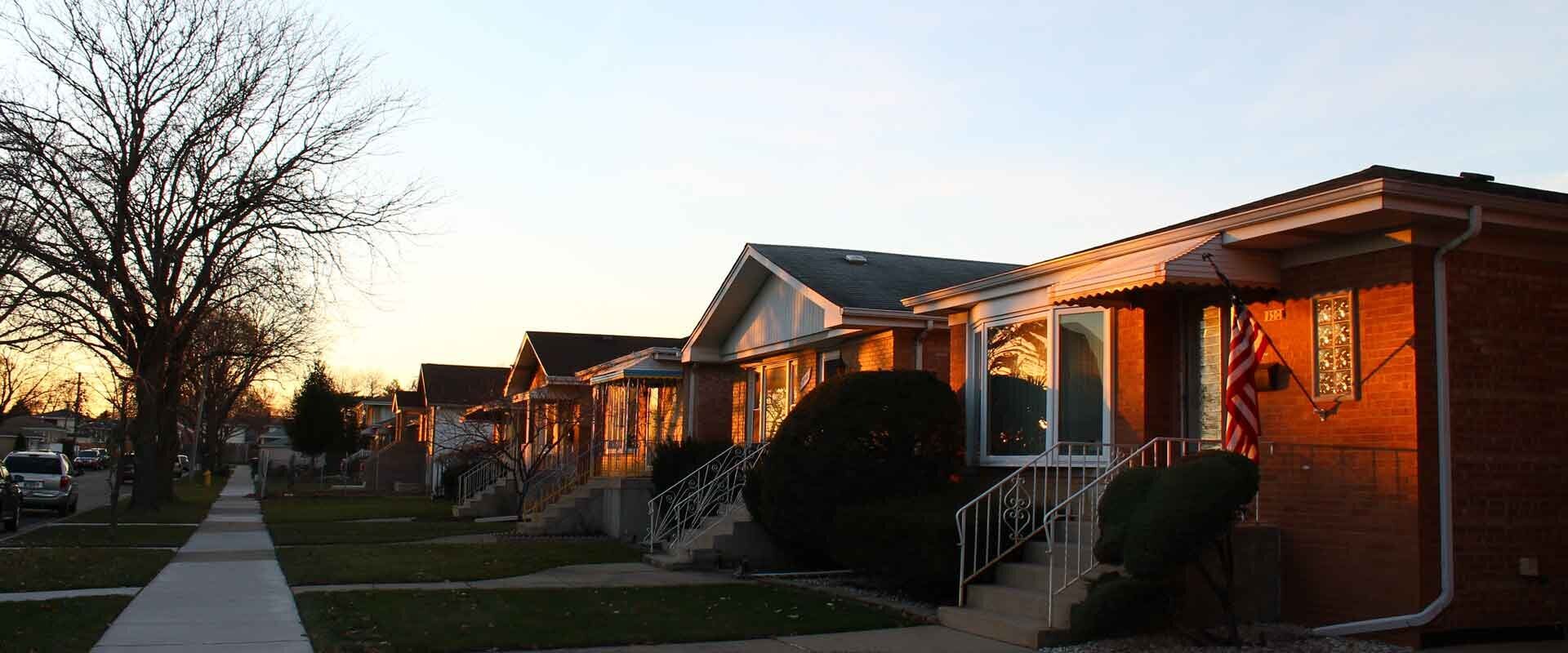Probate properties can offer significant opportunities for real estate investors and buyers seeking discounted deals, but what does it really involve for a homeowner going through the probate process to sell a home? In this article, we’ll break down the essentials of probate and guide you through the complexities of selling a probate property. Whether you’re managing the estate or looking to invest, understanding how to navigate this often-challenging process can help you make informed decisions and potentially secure a profitable sale.
What is a Probate?
When someone passes away, their assets either follow the directives laid out in a will or, if no will exists, are handled through intestate succession. Regardless, these assets immediately fall under the responsibility of the estate’s executor or the Court. Probate can be categorized into two main types: formal and informal. The informal probate process typically involves minimal court oversight, often because the deceased had a valid will, or there’s no disagreement about the rightful heirs. However, this article focuses on the more complex formal probate process. Formal probate may be necessary if the estate carries significant debt, the will is being contested, or if the original will is missing. In such cases, the Court must step in to manage the proceedings, adding more layers to an already complicated process.
Can a House Be Sold While in Probate?
Yes, it absolutely can! The sale of a probate property depends on how the estate was structured when the person passed away. Typically, three parties can handle the sale: the executor, who is designated in the will to oversee the estate; the administrator, appointed by the Court to manage the estate if no will exists (intestate) and heirs or beneficiaries are involved; and, in cases where there are no heirs stepping forward, the Court itself may manage the process. Once it’s determined who will inherit the property, the heirs or beneficiaries can then initiate the petition process to sell the probate property.
What Does it Take to Sell a House in Washington While in Probate?
The primary role of an executor is to safeguard the estate’s assets and ensure they are distributed according to the will’s instructions. However, there are instances where the estate may face significant financial burdens, such as outstanding debts to creditors or unpaid property taxes. In such cases, the executor, administrator, or even the Court may have the authority to sell the property to settle these obligations, even if heirs are entitled to the estate. This process helps ensure all debts are cleared before the remaining assets are distributed to beneficiaries.
A practical example of this would be an elderly woman who passes away, leaving an executor to manage her estate. She has two heirs, but by the time of her death, she has accumulated $90,000 in hospital and credit card debt. Although she owned a home valued at $150,000, she had no other liquid assets. With $80,000 owed to the hospital and $10,000 in credit card debt, the estate is responsible for settling these obligations. If the heirs cannot cover the debt out of pocket, the executor would need to sell the home to pay off the $90,000. After the sale, the remaining $60,000 would be distributed equally between the two heirs.
In cases where someone passes away without a will and no immediate heirs are identified, the property may still be sold through probate. In such situations, the Court can step in and order the sale of the property. Any proceeds from the sale are then distributed to the closest living relatives, as determined by state law. This process ensures that the estate is settled, even when no direct heirs are present to inherit the property.
Steps for Selling a House in Probate
If you’re dealing with a probate property in Washington and are finding it difficult to sell, don’t worry—there’s a path forward! While probate laws vary by state, the process to sell a property in probate can typically be completed in four key steps. The first of these is appointing an executor or administrator, if one hasn’t already been named by the deceased. This individual will be responsible for managing the estate and overseeing the sale of the property according to legal guidelines. From there, the process can move more smoothly toward a successful sale.
Once you’ve been appointed as the executor (or if you and the executor are aligned on how to proceed), you gain the authority to make decisions regarding the estate’s property. Whether the estate has debts to settle or you’ve inherited a home in a different state that isn’t practical to keep, selling may be the best option. However, before putting the property on the market, you’ll first need to have it appraised. After completing the appraisal, you can then petition the Court for permission to sell. From there, you have options: sell the property yourself (FSBO), partner with a realtor experienced in probate sales, or sell directly to an investor for a quicker transaction.
Decide How to Sell the Property:

Determining Property Value through Appraisal
The first step in selling a probate property is determining its current market value. To do this, you’ll need a professional appraisal from someone experienced with local laws and the probate process. In many states, the Court mandates that the property must be sold for at least 90% of its appraised value. This makes it crucial to find an appraiser familiar with probate sales who will provide an accurate, fair valuation without inflating the property’s worth. Having a realistic appraisal ensures you stay compliant with legal requirements while setting the right expectations for potential buyers.

Getting the Property Market-Ready
After obtaining the appraisal, the next step involves filing a petition with the Court to formally express your intention to sell the property. This petition, which should include the appraised value and your chosen sales method, will outline how you plan to proceed—whether through an auction, a traditional market sale, or a direct sale to an investor. Once the Court approves your request, you can move forward and list the property for sale. Regardless of the method you choose—selling on your own, working with a seasoned real estate agent, or going through an investor—it’s crucial to have an expert with probate experience guiding you through the process to ensure everything runs smoothly.

Evaluating and Responding to Offers
When offers begin to roll in—whether quickly or gradually—you’ll need to carefully assess which one aligns best with your goals for the sale. Are you looking for a fast sale to cover outstanding estate debts? Or do you have more time and hope to maximize your profit by waiting for a higher offer? Perhaps the property is in poor condition and requires a buyer who specializes in renovations. All these factors should influence your decision on how and when to sell a probate property. Taking the time to weigh these considerations will help you make the best choice for your unique situation.
Understanding your goals for the property sale is key to determining which offer is the right one to accept. Whether you’re aiming for a quick sale to settle estate debts, waiting for a higher price to maximize profits, or seeking a buyer who can handle extensive repairs, being clear about your objectives will guide your decision. Once you’ve identified the offer that best aligns with your needs, you can move forward confidently to the next step in the probate process.

Submitting the Notice of Proposed Sale
Once a buyer makes an offer on a probate property, it’s essential to inform them that the sale can only be finalized after receiving the Court’s confirmation. While this is a standard disclosure, buyers unfamiliar with probate sales may hesitate due to the extended timeline. This delay is one reason some buyers bypass probate properties, even when they are competitively priced for a quick sale. The additional waiting period can lead buyers to opt for more straightforward transactions. However, if the buyer is prepared for the process and willing to wait, the Court will review the offer and, once approved, issue an order to proceed with the sale.

Navigating the Probate Bidding Process
For probate properties sold through auction, the home can be marketed as available even before the court finalizes the approval to sell, helping to attract potential bidders. In probate auctions, the court typically oversees the bidding process, which follows strict rules and regulations. This method is usually a last resort due to the complexity involved. Once a winning bid is placed, the executor must petition the court to authorize the sale. However, if any of the heirs raise objections, the sale may be halted, and the court will then determine the appropriate course of action.

Completing the Probate Sale
Ideally, selling a house, condo, rental property, or land through probate will be a smooth process. Even if there are a few bumps along the way, once the Court accepts an offer, you’re ready to finalize the sale. The executor or attorney will need to submit a final account and petition for the distribution of the proceeds. After the Court grants approval, the necessary title documents can be signed, officially completing the sale and closing the probate process.
Who Buys Houses in Probate?
We do! At Coopers Home Buyers, we specialize in buying probate properties for cash, offering a hassle-free solution with fewer fees and less stress. If you’re looking to sell a house stuck in probate, contact us today for a competitive cash offer. No matter the condition of the property, we’re ready to buy. Let us help you navigate the often complicated probate process, making the sale quicker and easier for you. Reach out now to get started!
Get An Offer Today, Sell In A Matter Of Days
Mistakes to Avoid When Selling a Probate Property

The Risks of Rushing a Probate Sale
When a loved one passes away, families often want to sell the property quickly to move forward and have space to grieve. In some cases, there may be mounting debt with accumulating interest, prompting the executor or administrator to list the property below market value to cover those costs. Similarly, if the home is in poor condition or requires expensive repairs, the heirs may choose to sell it as-is for a lower price, avoiding the financial burden of renovations. In both situations, a fast sale may seem like the easiest path, even if it means accepting less than the property’s full potential value.

The Consequences of Skipping Real Estate Disclosures
Real estate disclosure laws can be just as complex as the probate process, depending on your state. These regulations require sellers to inform potential buyers about specific issues with the property—such as the presence of lead paint, asbestos, or other hazards—before the sale is finalized. Navigating these laws is crucial to ensure a smooth transaction and avoid legal complications down the road. Understanding the disclosures required in your area is an essential step when selling a home, especially in probate.
In most states, sellers and their agents are legally required to provide written disclosure of any “material defects” in the home. According to the National Association of Certified Home Inspectors, material defects refer to “…a specific issue with a system or component of a residential property that may have a significant, adverse impact on the value of the property, or that poses an unreasonable risk to people. The fact that a system or component is near, at or beyond the end of its normal useful life is not, in itself, a material defect.”
Experienced real estate agents are skilled at handling disclosure requirements, but what if you’ve inherited a house you’ve never lived in? How do you know what needs to be disclosed? In some states, executors, property sellers, or real estate agents may be exempt from completing local disclosure forms for probate properties. This is because the individual selling the home likely never lived there and may not have firsthand knowledge of the property’s condition. These exemptions can simplify the process, but it’s always wise to check your state’s specific laws to ensure compliance when selling an inherited home.
If you’re uncertain about your state’s probate and real estate disclosure laws, consulting someone experienced in probate real estate—whether a real estate agent or an investor familiar with purchasing probate properties—can help guide you through the process. If you’re considering selling directly to an investor, make sure they have experience buying probate homes and are comfortable taking on a property with limited disclosures. Many investors are willing to accept these risks, offering you a quick and hassle-free sale. Remember, you have options, and with the right help, you can successfully navigate the complexities of selling a probate property.

The Importance of Hiring a Probate Lawyer
We cannot stress this enough—working with a knowledgeable real estate lawyer experienced in probate can make the process significantly smoother and quicker than trying to handle it on your own! They’ll know exactly how to petition the Court, allowing you to move forward with selling the property. Additionally, they can guide you through each legal step, reducing the hassle and emotional strain that often accompanies the sale of a probate property. Even a simple consultation can help you avoid common pitfalls and ensure you don’t overlook any critical details in the probate process.

The Dangers of Delaying the Probate Process
When a loved one passes away, the grieving process can understandably cause everything else to be put on hold. However, during this time, the probate property still incurs expenses. Property taxes will continue to accumulate, utility bills will keep arriving, and mortgage payments will still be due until the estate is fully settled. Delaying the management of these responsibilities can lead to mounting costs that quickly diminish the estate’s assets, potentially leaving you in a challenging financial situation. Acting promptly to address the property is key to preserving the value of the estate.
Who Buys Houses in Probate?
We do! At Coopers Home Buyers, we specialize in buying probate properties for cash, offering a hassle-free solution with fewer fees and less stress. If you’re looking to sell a house stuck in probate, contact us today for a competitive cash offer. No matter the condition of the property, we’re ready to buy. Let us help you navigate the often complicated probate process, making the sale quicker and easier for you. Reach out now to get started!

